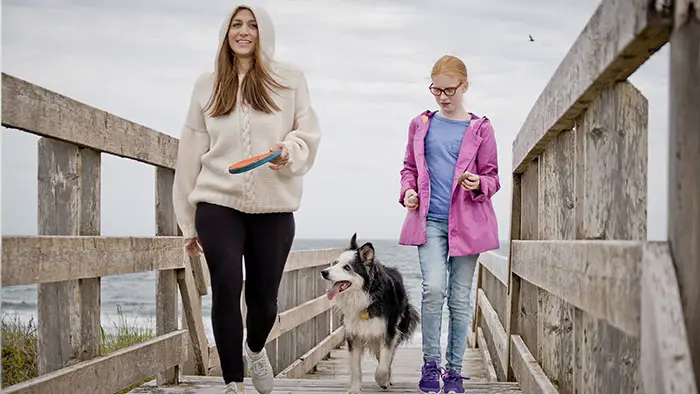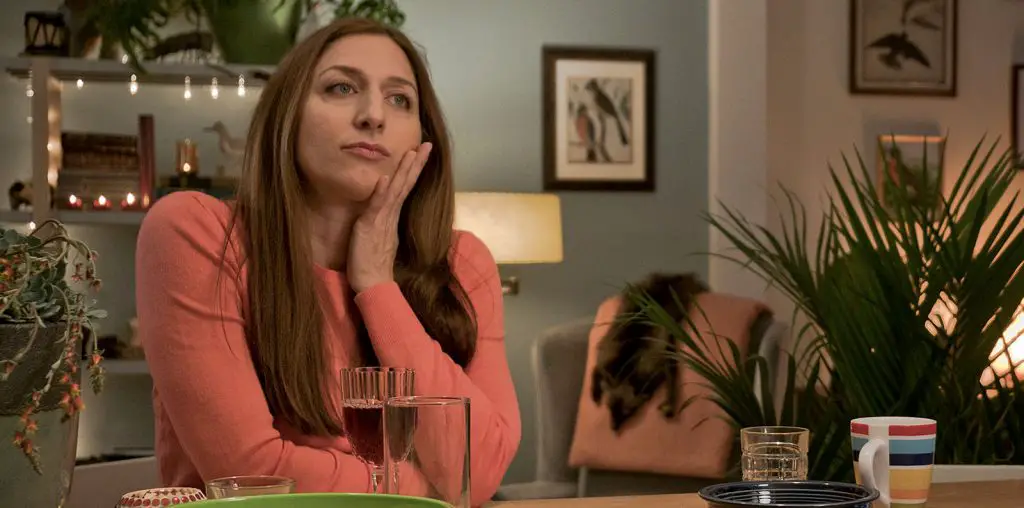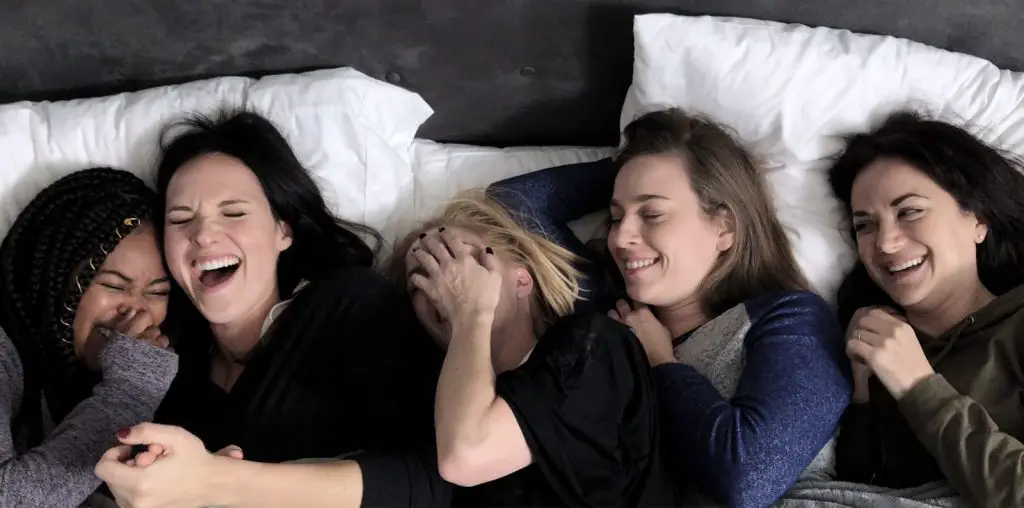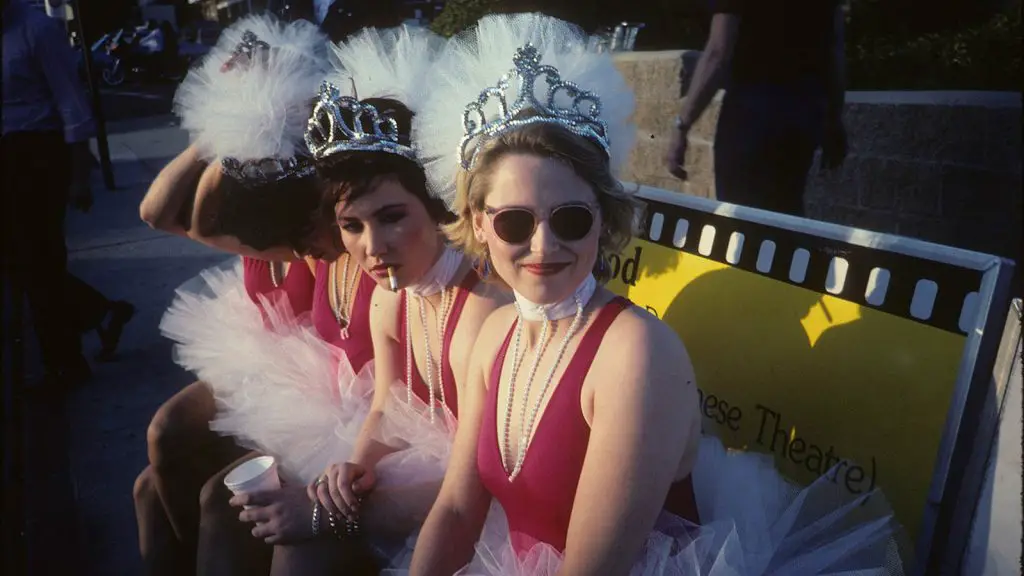
Chelsea, what would you say you have the most in common with Gaby, and what would you say is most dissimilar?
Chelsea: Well, you know, I never have seen the film Sliding Doors, but I like to talk about it all the time. So I feel like this film is the Sliding Doors scenario of what my life could have been. I remember before meeting my husband, thinking, “the guys in L.A. aren’t that great, and I may never meet someone, and my friends are all comedians. I get to laugh so hard at some of the funniest people in the country. I get to travel all over the world doing what I love, and no matter what, I’m going to have a great life full of travel and laughs.” I really had come to some sort of terms with that, and then I, of course, met my husband out of nowhere, and then it’s like all these other futures materialized. I could’ve easily seen my life going in a different direction. Particularly with climate change, I think there are more and more people who feel like they can’t or don’t want to have kids. So I just love that this script explored that other path. It didn’t feel so foreign to me. I feel like life could go any number of ways for anyone, and so I felt like it was just checking out an alternate path my life could’ve taken.
There are some really great locations, and so with Film Threat, we have a lot of burgeoning independent filmmakers in our readership, so I was wondering what kind of tips you would give to an independent filmmaker for location scouting?
Andrea: So every film I’ve made has been in Halifax, I’ve made four features, and they’ve all been really low-budget, including this film, and because they’re so low-budget we can’t afford to make sets, so before anything else in the film, really at the writing stage, the development stage, I go out and walk around, bike around and look for cool backdrops because we’ll never be able to afford to paint a set. Nova Scotia has some really gorgeously colored rowhouses. So then it’s just about finding something that would make a good backdrop for a scene, and it’s cheap, and you shoot your scene in front of it and then leave. So, the biggest tip for any low-budget independent filmmaker is: Take stock of what you have near you. What could give production value? Right outside of Nova Scotia, there’s this incredible cove called Polly’s Cove, and I love to go there and walk around. It took a bit of convincing to get the producers to okay, schlepping the camera into the cove area. It’s a hike about fifteen minutes off the highway. Then just using that. Nova Scotia is so gorgeous as a part of the world, geographically.

“Take stock of what you have near you. What could give production value?”
Chelsea: You were ahead of your time, though, because now, with social distancing, it’s the perfect location.
I mean for sure, I’m in New York, which is the complete opposite of that. I wish that I was there right now!
Andrea: I feel for you guys
I could go on for a long time about that, but I’m not gonna do it.
Chelsea: I think any American could.
I’m curious. I’m not single either, but I thought I was going to be forever until I met my boyfriend. The thing is that shouldn’t be important, but what I want to ask is, do you think we’re getting closer to being rid of the spinster stereotype in our society? Or are we already there? What do you guys think about this?
Chelsea: I think that selfies are gonna replace relationships. I mean, I think everyone online is in a relationship with themselves. I truly do sadly think that climate change—I think it’s a statistic. I know younger people that I’m friends with certainly, but I feel like it’s statistically true, people are less confident about having kids, period. So I think there’s just going to be, by necessity, a shift of people’s expectations of each other as the world keeps imploding. I don’t know if that’s a sexy answer to promote a film, but I don’t know, I think people are evolving so much that I think anything is possible. It’s weird, but it’s like sometimes it feels like—it’s hard to know what progress is being made or not.


